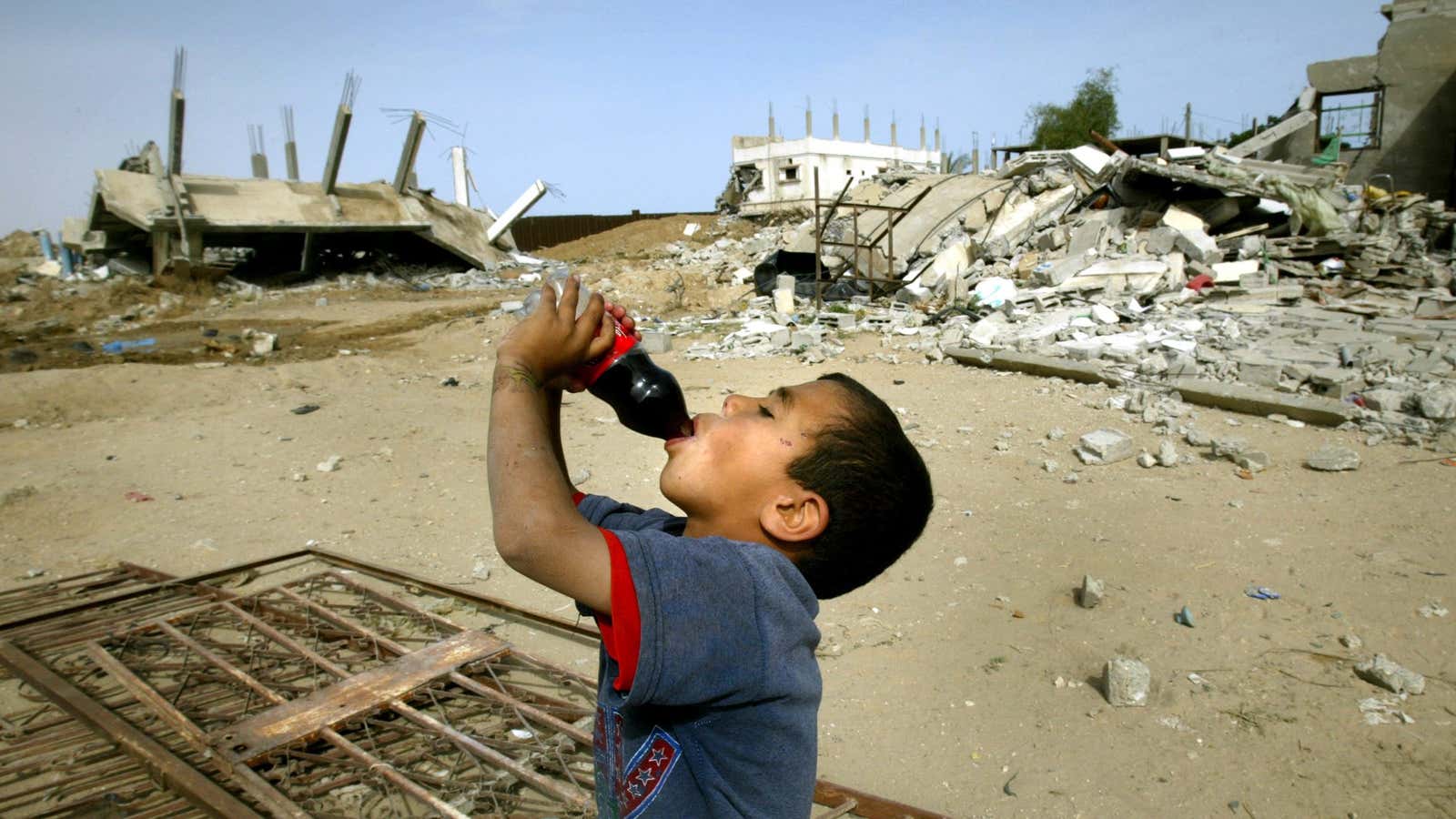About 95% of the water is undrinkable in Hamas-controlled Gaza, an enclave of 2 million Palestinians where infrastructure is deteriorating after a decade of conflict with Israel. The unemployment rate is more than 40%, and as high as 90% among college-educated women. Last year, the United Nations predicted the territory would be uninhabitable by 2020.
Try telling that to Coca-Cola. On Nov. 29, a local bottler for the Atlanta, Georgia-based beverage giant opened a $20 million factory in Gaza.
The new facility is the result of four years of work on the part of National Beverage Co., which has 600 employees and about $100 million in revenue, according to CEO Zahi Khouri. The factory will employ 120.
While the opening is a public-relations coup for Coca-Cola, it’s also a reminder of the role played by American multinationals. US president-elect Donald Trump may have roiled relations with the Muslim world by proposing a registry of people from Muslim countries, but Coca-Cola, which operates in 200 countries, can’t afford to alienate a significant emerging market.
“Multinationals have to have a foreign policy,” says Khouri, a Palestinian refugee who became an American citizen. Khouri first convinced Coca-Cola to invest in the West Bank in 1998, after the Oslo Accords.
Coke has already faced backlash over Gaza, which has been under an Israeli military blockade—reinforced by Egypt—for a decade. Attacks by Israel in 2014 led to boycotts of Coca-Cola in Muslim communities in India and the Pacific region.
The company needs the Middle East. Coca-Cola saw its revenue decline to $44.3 billion in 2015 from $46.9 billion in 2013 as developed-world consumers eschewed its flagship sugary drink. In 2012, Coke announced plans to spend $5 billion in the 24-country Middle East North African region.
The Gaza factory isn’t likely to be profitable anytime soon, Khouri says, but it’s still a sign of hope for local young people. In building the facility, National Beverage Co. faced obstacles that ranged from negotiating with Israelis over equipment—”being a Palestinian on Israeli roads requires a lot of work,” he says wryly—to sourcing uncontaminated water. Gaza’s aquifer is contaminated because the territory’s only outdated power plant was damaged in the war, shutting off power to the sewer system.
The bottler also took out risk insurance on the factory from an arm of the World Bank, which will cover any damages caused by another conflict.
“There won’t be another war,” Khouri says, optimistically. “Even politicians mature.”
